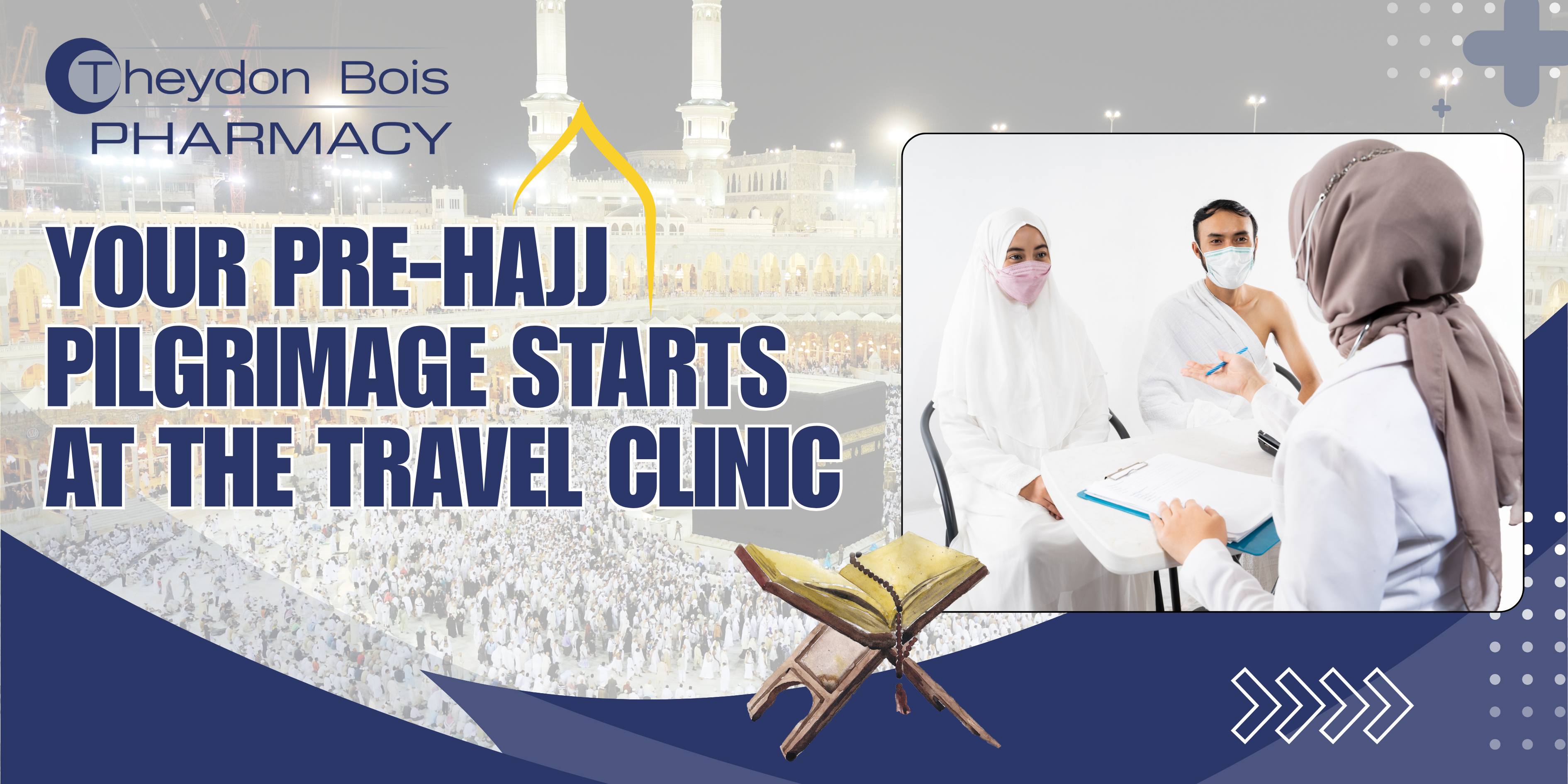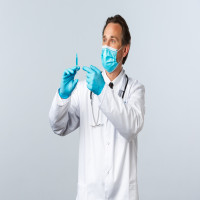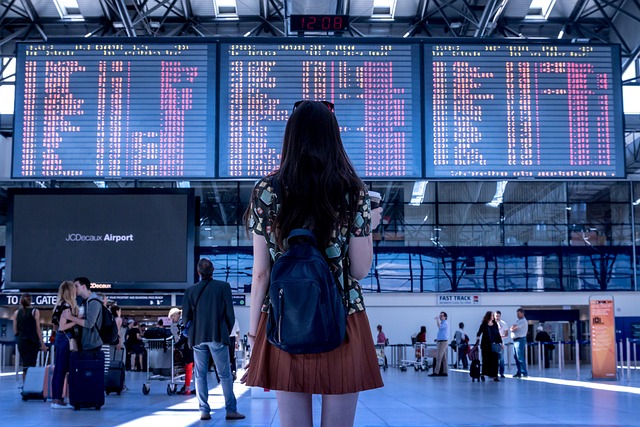Your Pre-Hajj Pilgrimage Starts At The Travel Clinic

Strong 8k brings an ultra-HD IPTV experience to your living room and your pocket.
Going on Hajj is a special and spiritual journey for Muslims around the world. While most people focus on preparing emotionally and spiritually, it’s just as important to look after your health.
One of the first things you should do before traveling is visit a travel clinic. They can guide you on any vaccines you need and give helpful advice to stay well during your trip.
Good health preparation is key to having a safe and smooth pilgrimage. Pilgrims are exposed to many health risks during Hajj and Umrah most of which can’t be avoided by vaccines alone. That’s why taking steps to protect your health before you go is so important.
Why Visiting a Travel Clinic Before Hajj is Important
Every year, more than two million people from all over the world come together for the Hajj pilgrimage. With so many people in one place, the chances of getting sick from infections, heat, or other health problems are much higher.
Visiting a travel clinic before you go can help you stay healthy and safe during your journey. Here's how:
- Get the Right Vaccines: Clinics can make sure you have all the vaccines required for entry into Saudi Arabia and to protect you from common illnesses.
- Tips for Dealing with the Heat: Learn how to stay cool and avoid heatstroke, dehydration, and exhaustion.
- Personal Health Advice: If you have any medical conditions, the clinic can help you plan how to manage them while you're traveling.
Hajj is a busy and crowded event, and it comes with some health risks that you should be prepared for.
Here’s what you might face during Hajj:
- Airborne infections like flu, COVID-19, and meningitis spread easily in crowded places.
- Stomach problems can happen because of unfamiliar food, water, or hygiene conditions.
- Heat-related issues like heat exhaustion or heatstroke are common due to extreme temperatures (often over 40°C or 104°F).
- Chronic health problems such as asthma, diabetes, or heart conditions may get worse with the physical and emotional demands of the journey.
- Travel vaccination clinics help you get ready for all of this. They provide important vaccines, give tips on staying cool and hydrated, and offer advice to manage any health conditions you already have.
Essential Vaccinations Before You Go on Hajj
Required Vaccines: What You Must Have
These vaccines are mandatory for all pilgrims, and you’ll need to show proof of vaccination to get your visa:
- Meningococcal ACWY Vaccine: This vaccine protects against meningitis and is required for all pilgrims. You’ll need proof of this vaccination within the last 5 years to process your visa.
- COVID-19 Vaccine: Depending on the current global situation, full vaccination against COVID-19 may be required for all travelers, especially for those aged 12 and over.
- Polio Vaccine: If you’re coming from certain countries, you’ll need a polio booster, even if you’ve already been vaccinated as a child.
- Yellow Fever Vaccine: If you are traveling from a country where yellow fever is common, you’ll need proof of this vaccine to enter Saudi Arabia.
Recommended Vaccines: Keep Yourself Safe
These vaccines aren’t mandatory, but they’re highly recommended to stay healthy during Hajj:
- Influenza (Flu) Vaccine: Hajj brings large crowds, which means a higher risk of catching the flu. It’s highly recommended to protect yourself from the flu.
- Hepatitis A and B: These vaccines protect against liver diseases caused by contaminated food, water, or exposure to certain medical procedures.
- Typhoid Vaccine: If you're staying longer or eating food from street vendors or different places, this vaccine is a good idea to avoid stomach illnesses.
Routine Vaccines: Keep Them Updated
Make sure you're up-to-date with these important vaccines before you go:
- Tetanus, Diphtheria, and Polio: These vaccines should be up to date to protect you from infections that can occur through cuts, injuries, or exposure.
- Measles, Mumps, and Rubella (MMR): It's important to have these vaccines, especially with the global rise in travel and disease spread.
- Seasonal Flu (Influenza): Besides the flu vaccine, if you haven't already received the seasonal flu shot, it's a good idea to get it.
Managing Chronic Conditions
Diabetes: Get advice on managing insulin or oral medications while fasting and dealing with extreme heat.
- Hypertension & Heart Disease: The clinic can adjust medications, provide heat-related precautions, and share emergency protocols.
- Asthma/Respiratory Illness: Learn how to manage inhalers, avoid irritants, and deal with crowded, dusty environments.
- Mobility Issues: If you have joint pain or disabilities, the clinic can recommend walking aids or lightweight wheelchairs to navigate Hajj’s terrain comfortably.
Essential Travel Kit and Preventive Supplies for Hajj
Medical Kit Essentials:
- Oral Rehydration Salts & Electrolyte Tablets: Stay hydrated in the heat.
- High-SPF Sunscreen & Lip Balm: Protect your skin from sun damage.
- Pain Relievers: Pack paracetamol or ibuprofen for headaches or body aches.
- Antidiarrheal & Anti-nausea Medication: For stomach issues.
- Blister Care: Plasters, moleskin, and antiseptic creams for sore feet.
- Masks & Hand Sanitizer: Disposable masks for crowded spaces and alcohol-based sanitizer for hygiene.
- Bandages & Basic Wound Care: For minor cuts and scrapes.
- Eye Drops & Saline Nasal Spray: To combat dryness.
Hygiene & Safety Tips:
- Hand Hygiene: Wash hands often or use hand sanitizer.
- Wear a Mask: Especially in crowded or enclosed spaces.
- Stay Hydrated: Drink 3-4 liters of water daily.
- Be Careful with Food & Water: Stick to bottled water and avoid street food.
- Rest & Dress Smart: Rest during peak heat hours and wear breathable clothing.
Health and Safety Tips for Hajj and Umrah
1. Prevent Infections
Influenza & COVID-19: Wear a mask and practice good hand hygiene to protect yourself from viruses, which spread easily in crowded places.
MERS-CoV: This virus, spread by camels, can cause severe illness. Avoid contact with camels, raw camel milk, and camel meat. Seek medical attention if you experience fever, cough, or breathing issues.
2. Protect Yourself from the Sun
The intense heat in Saudi Arabia can lead to dehydration and heat-related illnesses. Stay hydrated by drinking 3-4 liters of water daily, take rest breaks, and seek shade. Use SPF 30+ sunscreen, wear sunglasses, and consider an umbrella for shade. Perform some rituals in the evening to avoid the harsh daytime sun.
3. Guard Against Mosquitoes
To avoid mosquito bites and the risk of diseases like Dengue (spread by mosquitoes), wear long, loose clothing and apply insect repellent over your sunscreen. If sleeping indoors without air conditioning, use a mosquito net.
4. Take Care of Your Feet
Hajj and Umrah require long walks and standing for long periods. Wear comfortable shoes, keep feet clean and dry, and treat any injuries or infections immediately. Be careful walking barefoot on hot surfaces like marble or sand, as it can burn your feet.
5. Stay Physically Fit
The physical demands of Hajj and Umrah are high, so it’s important to stay active before your trip. Exercise regularly to improve your endurance, as walking long distances in hot weather can be taxing.
Have a Safe and Fulfilling Hajj Journey With Trusted Travel Clinic
Travel vaccines are an important part of staying protected when visiting different countries, as they help prevent illnesses that may be common in those regions.
Hajj is a journey of faith and devotion, but it shouldn’t push your physical limits due to preventable health issues. A visit to the travel clinic is essential for your preparation, helping you honor the responsibility to care for your health. Prioritize your well-being by booking that appointment before planning your itinerary.
After returning, if you experience symptoms like fever, cough, or shortness of breath, seek medical attention and mention your travel history. Preparing wisely ensures a safe and spiritually fulfilling journey.
Note: IndiBlogHub features both user-submitted and editorial content. We do not verify third-party contributions. Read our Disclaimer and Privacy Policyfor details.







